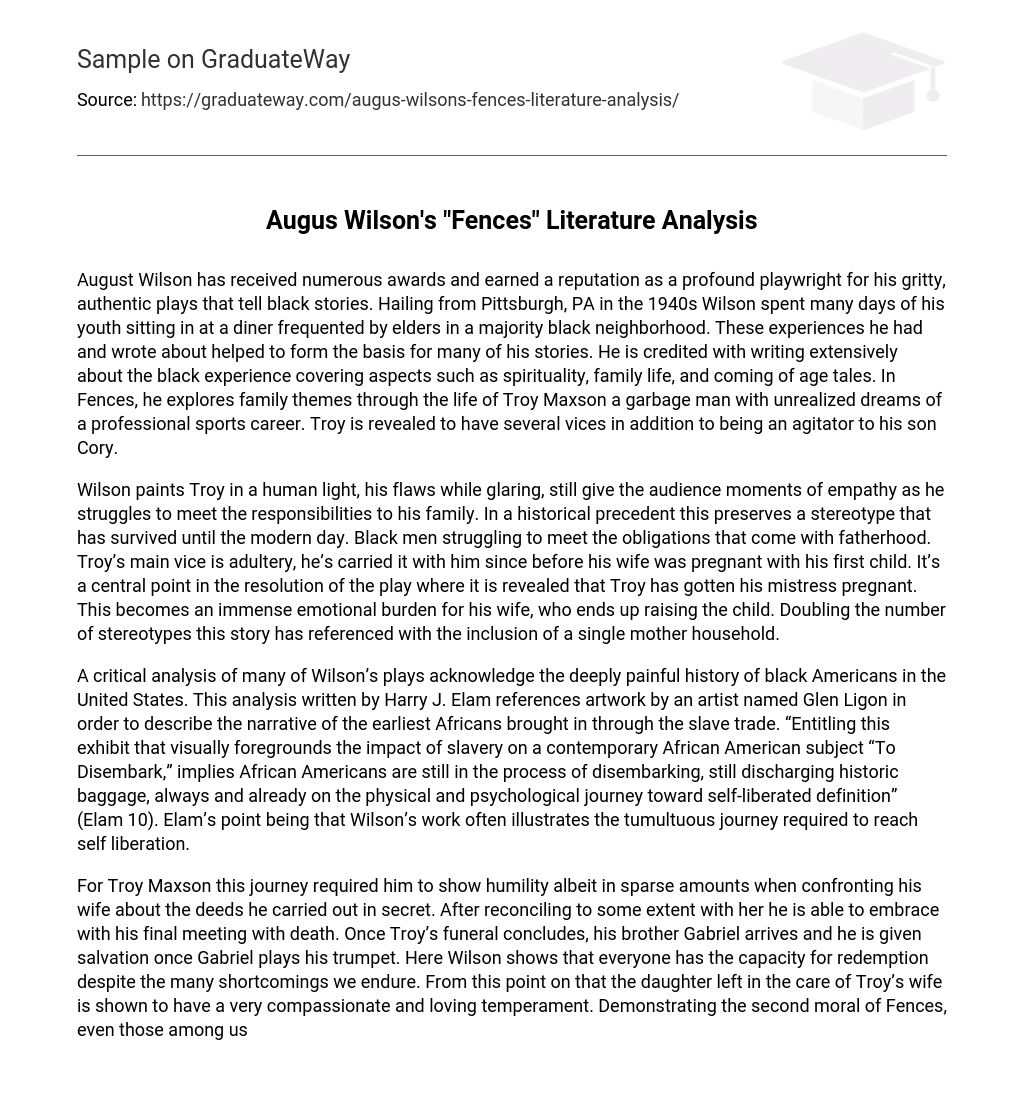August Wilson has received numerous awards and earned a reputation as a profound playwright for his gritty, authentic plays that tell black stories. Hailing from Pittsburgh, PA in the 1940s Wilson spent many days of his youth sitting in at a diner frequented by elders in a majority black neighborhood. These experiences he had and wrote about helped to form the basis for many of his stories. He is credited with writing extensively about the black experience covering aspects such as spirituality, family life, and coming of age tales. In Fences, he explores family themes through the life of Troy Maxson a garbage man with unrealized dreams of a professional sports career. Troy is revealed to have several vices in addition to being an agitator to his son Cory.
Wilson paints Troy in a human light, his flaws while glaring, still give the audience moments of empathy as he struggles to meet the responsibilities to his family. In a historical precedent this preserves a stereotype that has survived until the modern day. Black men struggling to meet the obligations that come with fatherhood. Troy’s main vice is adultery, he’s carried it with him since before his wife was pregnant with his first child. It’s a central point in the resolution of the play where it is revealed that Troy has gotten his mistress pregnant. This becomes an immense emotional burden for his wife, who ends up raising the child. Doubling the number of stereotypes this story has referenced with the inclusion of a single mother household.
A critical analysis of many of Wilson’s plays acknowledge the deeply painful history of black Americans in the United States. This analysis written by Harry J. Elam references artwork by an artist named Glen Ligon in order to describe the narrative of the earliest Africans brought in through the slave trade. “Entitling this exhibit that visually foregrounds the impact of slavery on a contemporary African American subject “To Disembark,” implies African Americans are still in the process of disembarking, still discharging historic baggage, always and already on the physical and psychological journey toward self-liberated definition” (Elam 10). Elam’s point being that Wilson’s work often illustrates the tumultuous journey required to reach self liberation.
For Troy Maxson this journey required him to show humility albeit in sparse amounts when confronting his wife about the deeds he carried out in secret. After reconciling to some extent with her he is able to embrace with his final meeting with death. Once Troy’s funeral concludes, his brother Gabriel arrives and he is given salvation once Gabriel plays his trumpet. Here Wilson shows that everyone has the capacity for redemption despite the many shortcomings we endure. From this point on that the daughter left in the care of Troy’s wife is shown to have a very compassionate and loving temperament. Demonstrating the second moral of Fences, even those among us who aren’t necessarily righteous can bless the lives of others.





